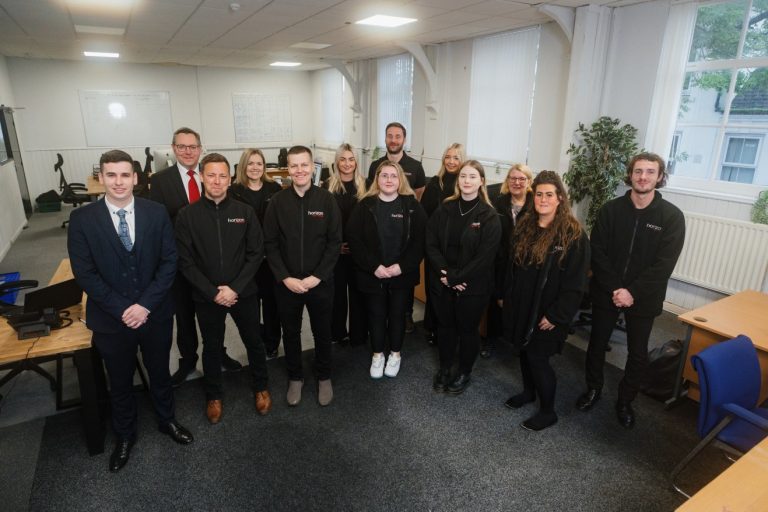- Connecting industries and networks across environmental science and finance;
- Knowledge exchange and support for the application of climate science in industry;
- Innovation and early-stage business support.
Stronger links between science and innovation and financial institutions to be forged at new Innovation Hub in Leeds
Property firm embarks on hiring spree
West Lindsey manufacturing firms offered fully-funded business advice
- Business Coaching.
- Productivity Improvement & LEAN Manufacturing.
- Sales and Marketing.
- Finance & fund raising.
- HR and Workforce Development.
- Protecting Intellectual Property.
- Leadership & Management Training.
Awards recognise the best in building design in Leeds
Government asks businesses for advice on Turkish free trade agreement
“Turkey is a great strategic partner and we already have a thriving trading relationship – up more than 30% in the last year alone. I’m incredibly excited to start upgrading our FTA, opening up opportunities for growth and giving British businesses better access to a market of some 85 million people.”
Mike Sheldon gets second three-year term as Chair of the Seafish Board
Global developments see Rotherham firm’s headcount reach 2,000
Continuing global expansion means the AES Engineering Ltd group, including AESSEAL and AVT Reliability, has taken on its 2,000th employee worldwide.
The group has accelerated its growth by investing in people as well as in the latest robotic and AI-powered technology at AESSEAL’s recently-completed £61m “Factory for the Future” in Rotherham and through global acquisitions and partnerships. MD Chris Rea said the company goal was not to be the biggest, but to be the best. “We welcome all the new members of the AES ‘family’, as we need the best possible people to give the exceptional customer service that drives our success.” The group, headquartered in Rotherham in the UK, is one of the world’s largest manufacturers of mechanical seals used in all types of industry and is a leading advocate of environmentally friendly investment to reduce pollution, lower carbon emissions, and cut water use. AES has been audited as Net Zero on its direct and indirect energy use since 2021 and continues to demonstrate that its positive environmental impact, helping global customers, exceeds supply chain emissions. This gives it the unique status among major engineering companies of having achieved Net Zero on all environmental scopes. AESSEAL, the group’s main global brand, was founded in 1979, with a handful of staff. It now operates from more than 231 locations in 104 countries, and holds, in addition to its engineered product portfolio, the world’s most comprehensive standard inventory portfolio of mechanical seals, bearing protectors, seal support systems, and packing. Acquisitions in Canada, Australia, Chile, and most recently a strategic partnership in Japan, joining forces with Torishima Japan Co., Ltd. have contributed to AES Engineering’s continuing expansion.Universities of Hull and Lincoln plan Humber Freeport collaboration
Specialist education school purchases grade II listed Moorfield House in Leeds
Children’s service provider Polaris has swooped to purchase the iconic Grade II listed Moorfield House building in Headingley, to transform it into a special educational needs school.
The unique opportunity to acquire approximately 20,000 sq ft on a 1.5-acre site will allow Polaris to cater for up to 80 students, in addition to the eight schools already up and running across the UK.
Strategic property advisers, Fox Lloyd Jones handled the sale of Moorfield House which comprises an attractive Grade II listed building across four floors, with the property retaining several period features including high ceilings, stone archways and a grand staircase. A single storey extension, known as the Brahm Building, provides further, ready-to-go accommodation.
The property offers a rich history, originally built around 1855 before becoming a Missionary College in 1936. Throughout the war years it is thought to have been used as a wartime administration office by the Royal Air Force, then as regional offices for the Automobile Association (AA). In recent years the building was occupied by marketing agency Brass (formerly Brahm) and acquired by Illuminating Investments in early 2020, before being purchased by Polaris.
Situated in a peaceful setting just off Otley Road (A660), the area is perfectly positioned for a school environment with large open spaces and a number of amenities in touching distance.
Polaris supports children and young people with additional needs, by helping provide them with the best tailored, diverse and appropriate education in a safe and supportive environment.
Harry Finney, associate director for Fox Lloyd Jones, said: “We’re really pleased to have successfully completed the sale of both Moorfield House and the Brahm Building to a user who is committed to restoring Moorfield House and will be using the wider site to its full potential.
“Moorfield House was a rare freehold opportunity and attracted significant interest from a diverse range of end users. We’re looking forward to seeing how the Polaris team transform the building into an educational space that will benefit the wider community.”
Loren Cahill, project manager for Polaris, said: “We’re absolutely thrilled with the acquisition of Moorfield House and Brahm Building in Headingley. With this remarkable space, we are poised to provide the best outcomes for young people, offering a supportive and empowering environment to learn, grow, and thrive. We cannot wait to open the doors to Ormston School and witness the positive impact we will undoubtedly make in the lives of these promising young individuals.”
Fox Lloyd Jones & Carter Towler were appointed as the joint disposal agents.












